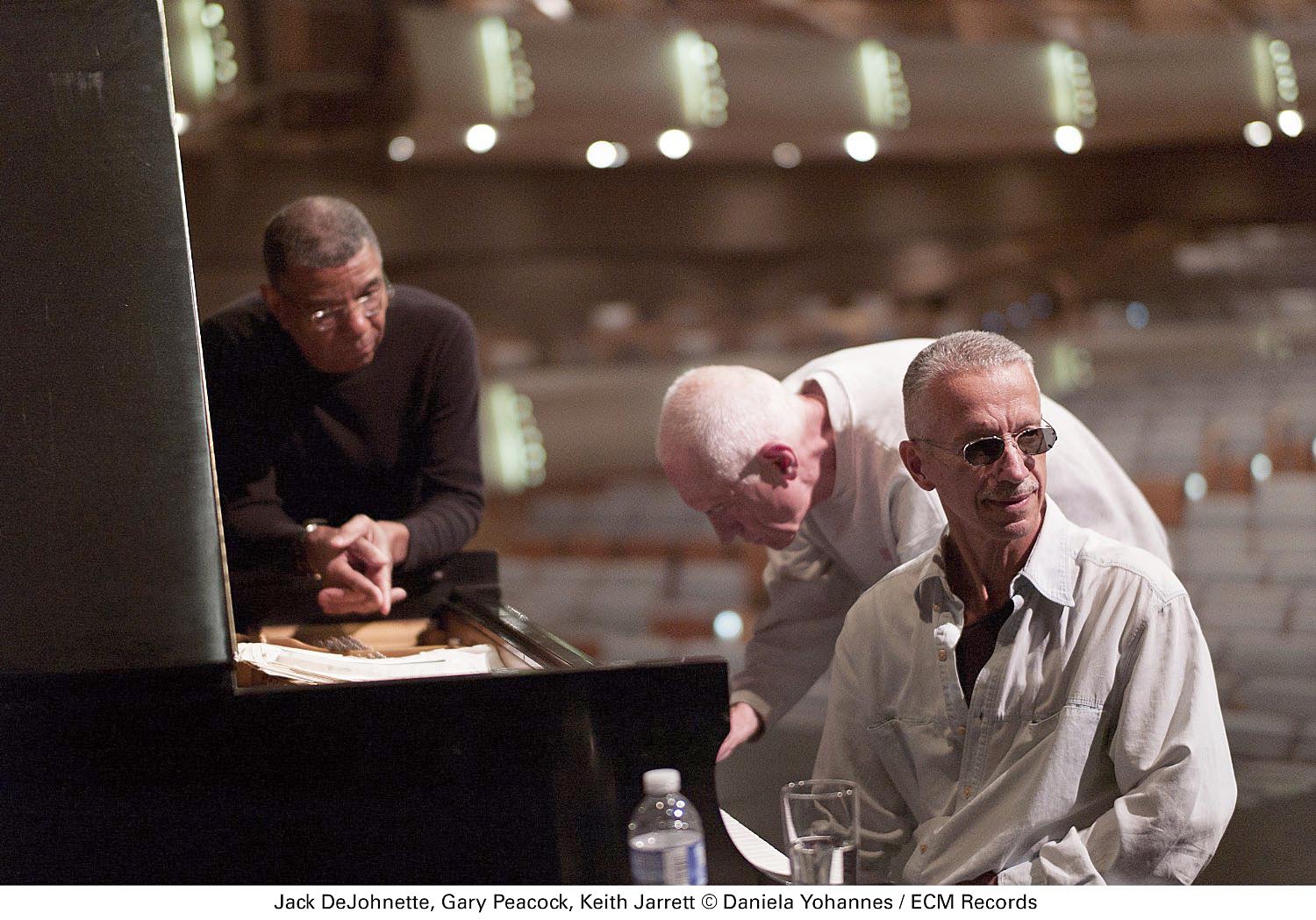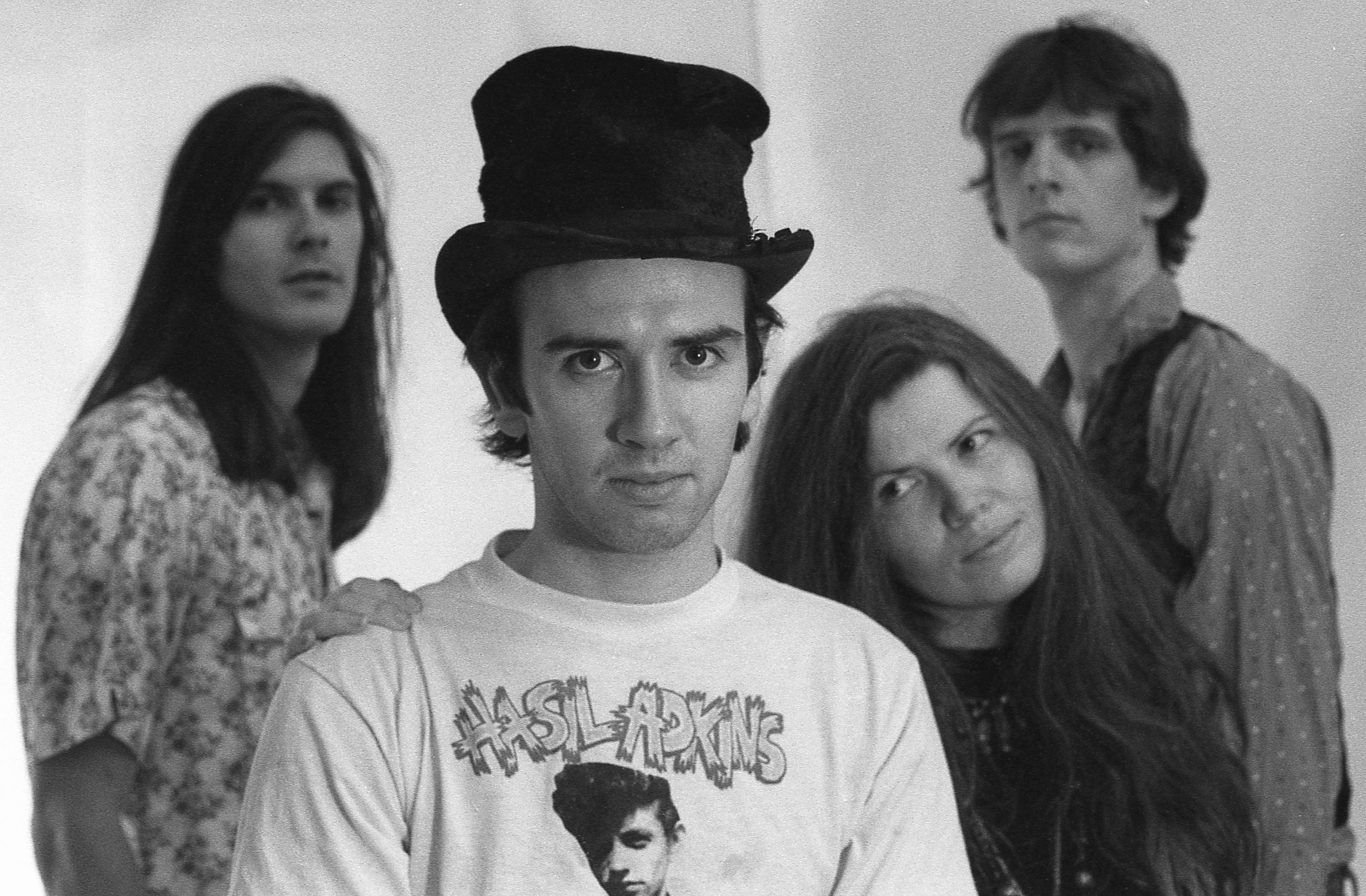The legendary, protean, and sometimes prickly pianist Keith Jarrett heads one of the best-known and most widely acclaimed jazz groups of the past 30 years, generally though unofficially known as the Standards Trio. With bassist Gary Peacock and drummer Jack DeJohnette, Jarrett is exploring in great depth what’s loosely termed the Great American Songbook.
It wasn’t always so. The trio was put together by ECM Records magnate Manfred Eicher for Tales of Another, a 1978 album of originals written by Peacock. In 1983 the three reconvened, again at Eicher’s suggestion, to record standards. And even though Peacock, for one, was wary of recording the stuff he used to teach fundamentals to jazz students, he trusted Jarrett. They cut three albums’ worth of material in a day and a half, and were on their way.
Since those early days some critics, and some fans, have wished Jarrett would incorporate more of his wilder attacks, such as his whole concerts of spontaneous improvisation, into the Standards Trio. It appears that Jarrett, despite his oft-expressed indifference to the ideas of anyone save his musical peers, just might be listening. The trio’s new album, Somewhere, starts with Jarrett alone at the piano, pulling in “Deep Space” from someplace heretofore unknown. Then the band edges into “Solar,” written by Jarrett’s old boss Miles Davis, and the variations on a theme grow richer, thicker, defying definition. The extent to which this new approach will affect the trio’s appearance here remains a mystery, however.
The performance at Benaroya Hall to open the Earshot Jazz Festival (Oct. 1–Nov. 17) is one of only four American stops on the Trio’s tour. This city has some resonance with the group. Peacock, reached by phone from his home in Claryville, N.Y. (“I basically live in a forest”), called Seattle home from 1972 to 1988—although he allows, with a chuckle, that after 1983, he was on the road a great deal.
Peacock and his second wife Nancy landed here after logging time in Tokyo (where they met) and Kyoto, where Peacock, taking a break from music, studied Oriental philosophy, tai chi, acupuncture, and Japanese. He enrolled at the University of Washington to study biology, left four years later just short of graduating, and in 1976 picked up a position teaching jazz at Cornish College of the Arts.
He recalls his students as “very eager, and talented,” but “with a different mind-set” than the one he’d cultivated after almost 20 years of playing jazz. “They’re not listening to analog, for one thing. Microphones and speakers and all this stuff going on.”
He also recalls that his charges had “almost to a man, impatience. Wanting to get from point A to point B overnight. That was a challenge for me—how to encourage them to water the lawn, let it grow by itself. If you didn’t have patience, when I was coming up, you didn’t make it through the week.” He struggled to understand their synthesizers and electronics, and he counseled a lot of garden-watering.
Asked about the trio and the changes in the interplay among the three men over the years, Peacock says things have become “deeper, more intimate, in some ways more subtle. There has become a continual relaxation of any kind of tension. There’s this kind of unified understanding that goes beyond talking or conceptualizing. Allowing the music to play you. You get out of the way. The melody lives and expresses through you.
“Once it’s experienced,” he finishes, “once you realized there’s no way you can grasp it except by getting out of the way, you’re continually drawn to it. You don’t want it to end.” Benaroya Hall, 200 University St., 215-4800, earshot.org. $30–$125/$425 for full festival pass. 8 p.m. Tues., Oct. 1.
music@seattleweekly.com






